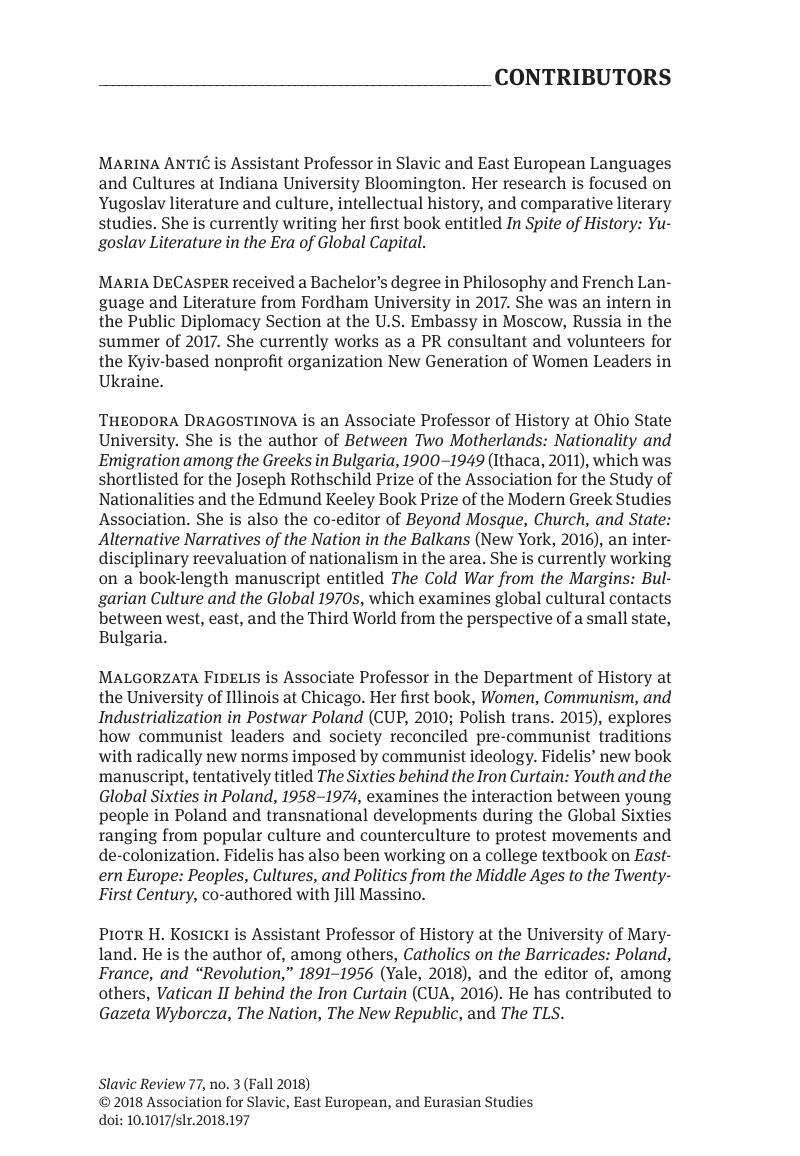No CrossRef data available.
Article contents
Contributors
Published online by Cambridge University Press: 25 October 2018
Abstract
An abstract is not available for this content so a preview has been provided. Please use the Get access link above for information on how to access this content.

Information
- Type
- Contributors
- Information
- Copyright
- Copyright © Association for Slavic, East European, and Eurasian Studies 2018

